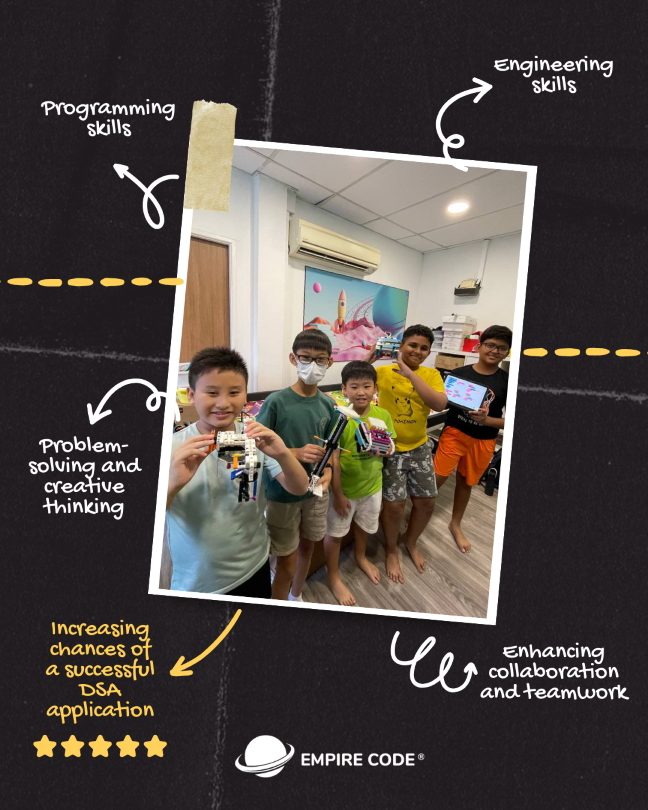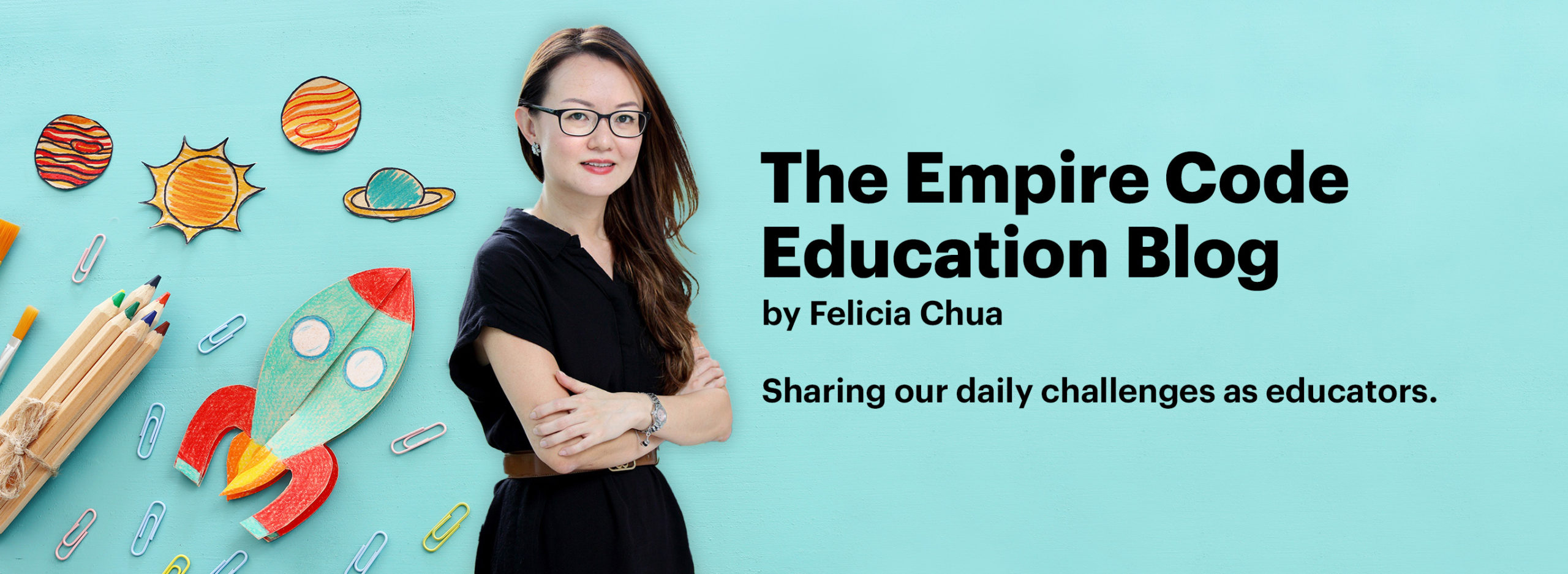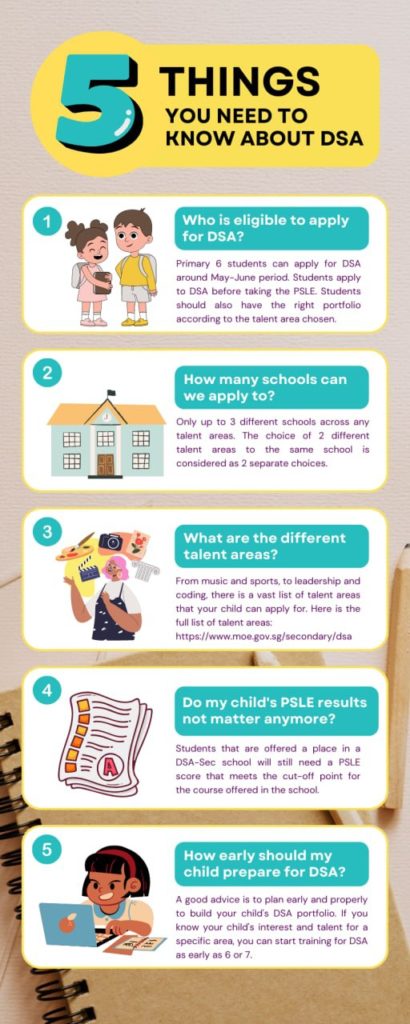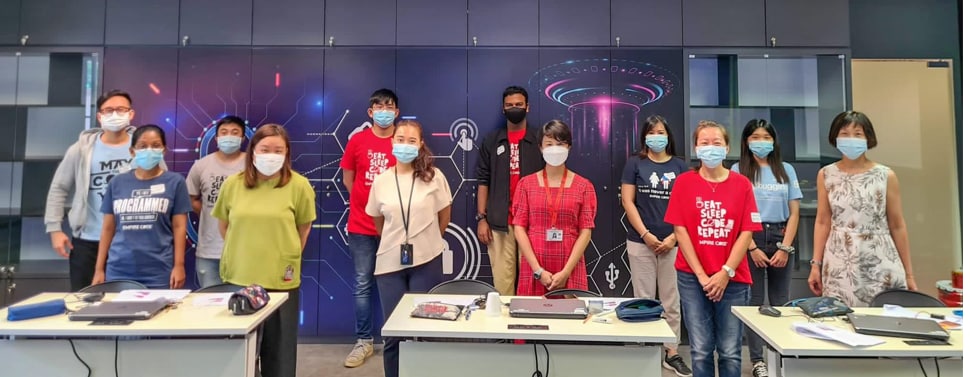Robotics plays a pivotal role in today’s technological landscape, streamlining tasks and paving the way for innovative solutions. From household robots to robotic arms used in surgery, robotics is revolutionizing how we interact with the world. This blog outlines four main benefits that competitive robotics competitions offer to primary school children, emphasizing the essential skills they cultivate for their character development, technical skills, and also for future secondary school DSA applications.

1. Master Engineering and Programming Skills
Robotics is not just about building with LEGO; it combines engineering skills and coding skills to create a moving robot that you can control to perform certain tasks more efficiently. At Empire Code, we use LEGO SPIKE Essentials and LEGO SPIKE Prime in our robotics classes, where students learn about different types of sensors, motors, gyro movement, and coding specific to robotics. Once students learn the basic robotics and coding skills, they can apply what they have learned in competitive robotics competitions. These competitions offer hands-on experience with technology, fostering technical skills alongside creativity and critical thinking. Such competitions usually require students to build an autonomous robot that can solve as many missions in a playfield within a given time (usually 2-3 minutes). Hence, students need to strategize in building their base robots and attachments, coding it to move fast and efficiently, and strategizing their game plan so that it can solve a few missions within a few moves. Through such competitions, children grasp the intricacies of how things work, nurturing their technical skills especially in engineering and programming.
2. Enhancing Collaboration and Teamwork
In robotics competitions, students are usually grouped in teams of 2-5, fostering collaboration. Participants engage in team-based challenges, honing their abilities to lead, communicate, coordinate, and collaborate effectively. During these robotics competitions, each student also has specific parts to present and roles to play during the robot games. This collaborative environment allows students to learn vital life skills including time management, emotional regulation, and leadership. The journey through robotics competitions is one of mutual learning and respect, with each team member contributing to and benefiting from the collective effort.
3. Cultivating Problem-Solving and Creative Thinking
At the heart of robotics is the development of problem-solving and creative thinking skills. Students will inevitably face problems along the way, such as the robot not working as expected or the codes having errors. Hence, children will need to approach the problems methodically, breaking them down into manageable parts and applying logical reasoning to create effective solutions to solve problems. This discipline teaches them that there are numerous ways to solve a problem, promoting flexibility in thought and the courage to experiment. In robotics and programming, failure is not a setback but also a stepping stone to innovation, empowering students to be open to everyone’s ideas and embrace challenges together.
4. Increasing Chances of a Successful DSA Application
In an era where STEM education is increasingly recognized for its importance, early exposure to robotics provides children with a solid foundation in science, technology, engineering, and mathematics. If your child is interested in robotics and STEM, you can consider applying them to secondary schools under these specific DSA tracks. Joining robotics competitions will help your child (1) discover their passion for robotics and STEM and (2) increase their chances of a successful DSA application, as they can showcase their skills and dedication to these talent tracks to potential schools.
In conclusion, competitive robotics competitions offer many benefits, and children develop a myriad of skills that are crucial for future success, including technical skills, teamwork, problem-solving, and creativity. Moreover, the experience gained from robotics competitions is invaluable for DSA applications, highlighting a child’s commitment to and proficiency in such disciplines. By encouraging participation in competitive robotics, we are not only fostering a generation of tech-savvy individuals but also paving the way for their bright futures.
The two main national robotics competitions that you can consider for your child are (1) FIRST LEGO League Explore and Challenge and (2) National Robotics Competition. Such competitions have both lower and upper primary age categories, so your child as young as 7 can get his/her first robotics competition experience through these competitions. To find out more details on how competitions increase their chances of getting in through DSA robotics/STEM/innovation, you can contact our friendly consultant for a DSA consultation and plan out your child’s learning journey together.
Click on other categories below to view previous articles that may be of interest:





